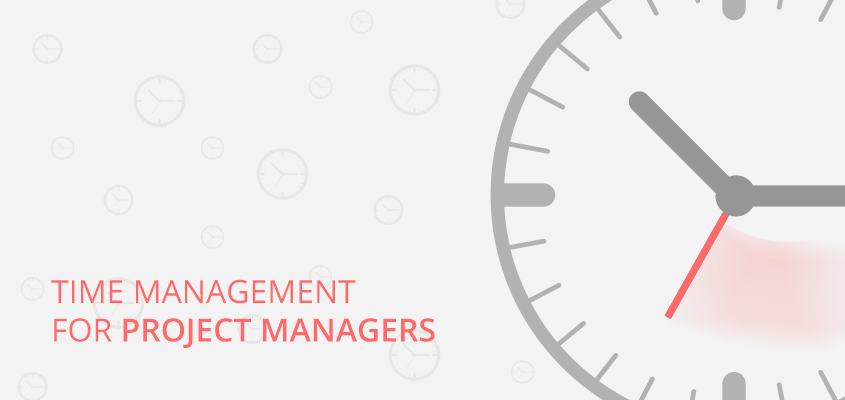Time Management for Project Managers

When you are a Project Manager you generally do not have the luxury of working on one or two projects at a time. Your position demands you to take up on 3 to 4 projects or even more.
Each project is unique and team members working on each project are different. The approach to each project can be entirely or a little different, regardless of how well Agile Methodology is being followed. One project will require more attention than others, one project will always have trouble meeting the deadline, and the list goes on…
So how can a Project Manager handle all these? He does not have the luxury of a dedicated Product Manager (in most cases) or scrum master (unless you are blessed with one for the project). Therefore: the Project Manager is in fact a 3 in 1. Success of a PM depends on how efficiently he manages his time, not just in managing projects at work, but beginning when he gets out of bed through to going back to sleep. It cannot be just all tidy at work and big time messy at home. It is like working out your upper body only and thinking your lower body will automatically get buffed. It is a process that needs to be followed through on a daily basis. Otherwise it will become increasingly painful and stressful. And a company of course does not want a stressed out or burned down PM.
A PM must embrace each and every project as their own child. The reason I say that is because just like a child, PM needs to nurture the project on a daily basis and follow same process every single day. Just as you cannot be feeding your kid properly one day then skip feeding couple of meals on another day, expecting consistent progress. If a scrum is scheduled at 9 am everyday then team must meet at 9 am. Rules must be distributed among team members, as I mentioned earlier, each project is different. One project will require more time on scrums than others (you cannot expect every member in the team to be equally enthusiastic about joining your scrum or delivering work or coming to work at all). Sprint meetings, writing user stories- they all follow the same rule.
The process that I have been following for the last 3 years means that my day starts even before I come to the office or turn on my computer. I draw a timeline of things to do in my head and I try to stick to that. Even if I can achieve 60-70% of the way I envisioned my day, then I call it a success. I break my projects into different priority levels and each day that priority changes (one project may have big tasks going LIVE one day, another might have sprint meeting another day OR big client meeting etc) so that specific order changes everyday. Also the tendency to check all emails in the beginning of the day is a no no for me. It ruins my entire thought process, all the projects start to run together in my head and I cannot concentrate on one. I lose track of my urgent vs important tasks.
Following up on action items is equally important as following up on projects. What is unnecessary or unimportant for you may be very important and super urgent for others. So if an AI is assigned to you for that day, then responding to that on time also shows that you care. It also helps you build interpersonal relationships with other team members (all PM knows how important that is as we often need favors from almost everyone; from developers to HR, from QA to design team).
Now comes responding to emails or sending work updates to your client. I often used to neglect this, like I read an email in the morning thinking Ill reply later in the day and then completely forget about it- by the time I realize it the next day, its too late to respond. What I am trying to emphasize here, is consistency. If you tell your client you will let him know about something by tomorrow morning, then make sure you do it. Whilst it may not be an important update for you to send but maybe that is the email your client was waiting for the whole night. It also shows that you care. Sending thank you emails to your team members also has a significant impact on work. A simple thank you email while ccing it to your fellow PMs/CEO can make that member feel important as he was appreciated/acknowledged to all other PMs. But it needs to be done on time, after an outstanding performance by a team member. You don’t want to wait another week to send that email, it will not have the same impact as it would if you sent it within the same day.
There is no certain formula on how to manage your time. Everybody has their own way and as long as you are consistent with it and it works for the company, it is all good. All PMs should read enough books/articles about time management and see what works for them, without this time management becoming another project of its own for them. It should come naturally (or at least work on it till it becomes a habit) and you should embrace it as part of the life.

DRUPAL: The CMS you must be looking for!

Culture & happiness in SJI


